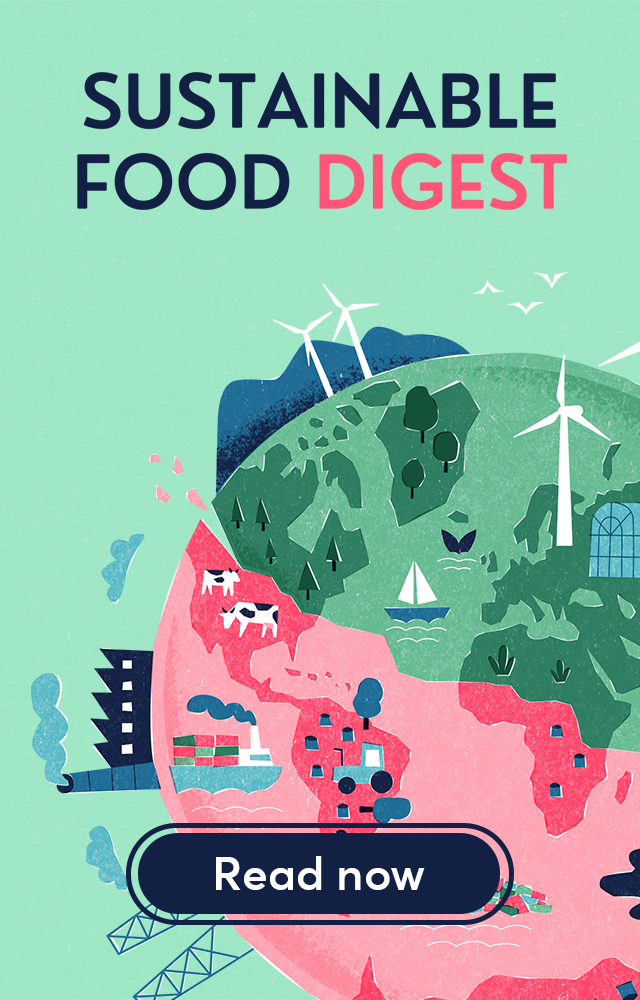Sustainability among top drivers of innovation for food packaging industry, survey shows

Sustainability is one of the main drivers of innovation for global food packaging professionals, according to a new survey.
The responses from packaging professionals worldwide, published by packaging, product, and material test and inspection provider Industrial Physics, reveal supporting sustainability initiatives for packaging is important to 50% people working in the food and drinks sector.
Another priority for 56% of respondents is improving consumer ease of use. Some 63% said ensuring quality and safety of the product inside the package was a top innovation driver, while nearly 70% saw guaranteeing the quality of packaging as essential to packaging product development.
Investing in recyclability and reducing waste is also important to 60% and 59% of respondents, with over a third of them saying they are exploring manufacturing processes such as lightweighting (reducing the amount of material used in metal packaging) to support waste reduction across the supply chain.
The report also shows the price of materials is a major challenge for over half of packaging professionals, but funding new material development is still popular. Some 43% said reducing the use of plastic was a top priority for investment, with biodegradable and organic material highlighted as having the most potential in new packaging products by 58% and 51%.
Toby Lane, Product and Applications Manager at Industrial Physics, commented on the results in a statement: “Sustainability continues to drive material developments including plastic eradication from brands across the world. However, we must look at the broader picture in terms of material transportation weight, production energy, testing capability, food safety approval, and other related challenges.
“Material use debates often end with the question, ‘can the material ensure the quality and safety required?’ For example, plastic is currently used for food storage because it is highly effective at sealing food while offering a tough, lightweight barrier with various sealing options. Therefore, if manufacturers select a less effective material to support sustainability or cost objectives, they risk triggering negative impacts such as increased food waste. This would be in direct contrast to the wider objectives uncovered in the research around waste reduction.”
The lightweighting process can help food can manufacturers reduce product costs and material wastage. It also allows large quantities of cans to be transported using the same amount of fuel, according to Lane. “However, professionals must consider factors including retention of the can’s durability and ensuring that material reduction doesn’t compromise quality. Throughout the lightweighting process, cans must still adhere to stringent regulations, including food-grade coatings, seam closures and tamper-evident features”.
While nearly 100% of packaging professionals in the report said they would like to see new developments in the food and beverages sector, many also added that they have faced difficulties when testing new types of packaging. The high cost of expertise required is an issue for over 60%, while limited testing facilities is impacting 50% and a lack of in-house knowledge is affecting 44%.
Lane added: “Despite perceptions, the testing equipment and methods are still as applicable today. There are instances, for example in the case of recycled polymers where materials will behave differently and a new bank of data will need to be built, however, industry collaboration can prove valuable to gather a wider sample more quickly. Also, the equipment available today is often so automated that professionals do not need to have a highly specialized knowledge base to conduct the testing required.”
Sustainable packaging solutions are growing in abundance worldwide. This week, US-based business The Paper People partnered with Finnish fibre-based materials manufacturer Ahlstrom to launch a new paper material to replace traditional non-renewable plastic and films used in frozen food packaging. Earlier in August, Mondelēz International also teamed up with global packaging manufacturer Amcor to build an advanced plastic recycling facility in Australia.









